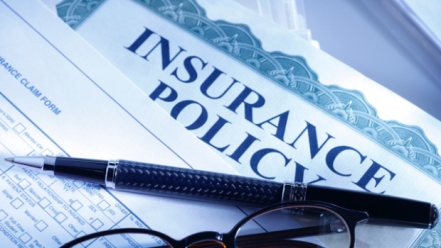Shopping for cheaper traditional types of car insurance with the sole focus on cost instead of appropriate coverage could drive consumers to the wrong type of policies and limit their options for better coverage. Read the article below to learn how you could take advantage of online auto insurance sites while getting the coverage you need without putting your credit score on the line.
It seems the auto insurance industry is on the cusp of a transformation.
Tracking devices are beginning to come along for the ride, sending insurers information about every turn and brake of your drive. A startup called Metromile offers pay-as-you-drive car insurance (available so far in four states) to those who drive less than 10,000 miles a year. But these newfangled ways to insure are still nascent, since, according to a 2014 Deloitte report, people are wary of privacy issues and the potential impact on pricing.
So the vast majority of people are still shopping for car insurance the old-fashioned way — and it’s as confusing as ever. The problem? The industry doesn’t have an MLS like for real estate or an ITA or Sabre like for flights, where all policies from every carrier can be compared in one place. Unlike shopping for a home or airline ticket, in order to get an actual auto insurance quote and not just an estimate, you need to give up a lot of data and access to your credit score, which the company doesn’t do until you’re close to buying because it costs money.
Still, businesses are trying to simplify the process. In the last year or so, a few new services — websites The Zebra and CompareNow, plus an iOS app calledGo — have launched to make it easier and faster for drivers to shop for cheaper traditional types of car insurance.
The Zebra offers side-by-side comparison of more than 1,800 products from more than 200 companies across all 50 states, representing 96% of the market. That’s significantly more than competitors like 14-year-old Insurance.com, which has 17 carriers (though none of the biggest ones like State Farm). But The Zebra serves up estimates, not actual rates. CompareNow offers actual rates, not estimates, but they only have 31 companies (including eight of the big 20), and in some markets, they only offer one carrier. Go is an iPhone app that can show you potentially cheaper rates within 30 seconds and also uses the motion co-processor in the iPhone 6 to come up with new offers based on your driving habits, but its quotes are much less accurate.
The biggest problem of all? These services have consumers focus on cost instead of appropriate coverage, which could lead consumers to policies that aren’t right for them.
“There are so many nuances to insurance, and people guess at the coverage levels they need and don’t realize what the repercussions are from the choices they’re making,” says Sarah Smith, the founder/broker/advisor of Options Insurance in Twin Cities, Minnesota.
The disadvantages of these new sites underscore the fact that the smartest way to search for insurance isn’t going to be one-stop shop. Online, “people go for the cheapest option, for the lowest liability coverage, which is really dumb because you wind up exposing yourself to lawsuits,” says Liz Weston, Bankrate contributing editor and author of Your Credit Score. “On the other side of that, working with a human being is not without its problems too. Even the so-called independent insurance agents work with a definite set of companies so you’re not getting the whole universe of possible options.”
So, even if you use a service like The Zebra, CompareNow or Go, check out more than one site and also talk to a couple agents, especially those who represent more than just one company. Here’s how you can use these new services to your advantage while obtaining appropriate coverage.
The Zebra
Image Source: Forbes.com
As you input information such as zip code, birthdate, gender and miles driven on The Zebra, you can see how the latest data has influenced your quotes. At the end, you choose a prepackaged coverage level: State Minimum, Basic, Darn Good and Winning. The results turn up a couple dozen policies, at which point the you can go directly to the insurer or call one of The Zebra’s licensed agents and purchase; 80% of shoppers choose one of the prepackaged options. The site, which launched at the end of 2013, claims that the average user saves $614 a year through the service, and some have saved as much as $1,200.
Adam Lyons, The Zebra’s CEO, said, “At the end of the day, there wasn’t a good way to compare insurance, and certainly not every company in one place. Even if you go to multiple insurance companies websites, they won’t give you an apples-to-apples comparison.” Users don’t pay anything extra for the service; revenue comes from partnerships with insurance companies. Though the site serves up estimates, Lyons says that as long as the consumer doesn’t enter incorrect information about things like their credit score or driving history, the quote is 99% accurate.
CompareNow
Image Source: Forbes.com
CompareNow, owned by the Admiral Group, which runs auto insurance comparison sites in the UK, Spain and France, prides itself on offering up accurate rates, making their experience similar to that of buying an airline ticket on Kayak. You enter all your information, and then select the carrier you want, and then click through to their site to purchase it. “Whenever you see a rate on our site, it’s an accurate rate. How do we know it’s accurate? Because it came from the insurance company,” says CEO Andrew Rose.
They don’t offer multiple companies in every state, though — while they have 15 carriers in, say, California, they only have one in markets like New York or Florida. Other states where they have multiple options include Texas, Ohio and Illinois.
The site offers four prepackaged types of coverage — state minimum, gold, silver and bronze — as well as a custom option, and about 75% of customers take a prepackaged option. CompareNow said that the savings their customer had was probably the same or more than what other companies claim but Rose said he finds such metrics to be misleading anyway since the way most companies phrase it is “of those who switched and saved.” Actually, he says, “the vast majority of people won’t save money. They won’t switch for small dollars. We can save people hundreds of dollars but I hate using that metric because it’s false for most people.”
Go
Image Source: Forbes.com
With Go, which launched in September, you enter the year and type of car, zip and current premium, then hit “Get Your Quote.” A handful of quotes showing you the average premium for your location and your car — without coverage levels factored in — pop up with an exhortation to call and request a specific program. (The company declined to tell me how many insurers the app has, though it says it has “most major insurers” and listed State Farm, Allstate and Liberty Mutual.) Over the course of the year, the app will send you notifications on how to save money. For instance, if you request student discounts, it will tell you, when the new semester begins, what new student rates are available. And, as the motion coprocessor collects data about your driving habits, it may recommend new rates. Go, which declined to disclose the number of customers it has, says the average user saves $342 a year.
Since the app immediately funnels you to a few different options without going into coverage, it’s questionable whether customers are really getting the best deals, as they may call the company offering the cheapest option, but find out from the representative that the rate is higher for the coverage they are seeking. There’s no way to get an apples-to-apples comparison of the policies offered by insurers for the coverage sought.
When asked how the app accounts for coverage, cofounder and CEO Kevin Pomplum said, “That was one of the tradeoffs we had to think about in terms of our product.” Their dilemma was to either require people fill out a lengthy form that went into details like coverage, or ask for little info and deliver averages.Inadequate Coverage?
Smith, the insurance agent, says she’s seen focus on price adversely affect people’s choices: “They don’t realize that insurance protects your other assets. If you get in an automobile accident, and you’re under-insured because you bought the cheapest thing, but you caused a humdinger of an accident, they can come after your 401(k) or an inheritance or the equity in your house, just because you wanted to save a few bucks on your coverage and someone didn’t explain what the repercussions were or how that coverage might protect other things or work with your other insurance.”
Some common mistakes she sees are customers requesting liability only (she asks them, “Is your car really worth $0?”) or putting roadside assistance coverage on their auto insurance because it’s cheap. But Smith recommends not doing the latter because “if you cost the insurance company money by asking for a tow, that will cost you money too, and that might affect your premium.” (On The Zebra, all three policies above the state minimum coverage offer $50-$75 worth of towing coverage, as do silver and gold on CompareNow.)
Smith also noted that The Zebra’s packages all had a $250 deductible, which is too low. “Any claim impacts your premiums. I promise,” she said, recommending a $1,000 deductible. Plus, these services don’t take into account that shoppers could save by bundling their coverage with their homeowner’s or renter’s insurance. Some but not all insurers do also offer loyalty discounts to longtime customers, though a study by the Office of Public Insurance Counsel in Texas found that the longer customers stayed with their insurance company, the higher their rates.
How To Buy Insurance
In the end, coverage should be tailored to the individual situation, taking into account not just your personal/family situation, which could affect the type of coverage you’d want, but also whether you could bundle more than one type of insurance together. So, start your search online by first learning about the different types of coverage — collision vs. comprehensive, uninsured, underinsured, etc. — to get a sense of what you need, and then go to comparison sites like The Zebra, CompareNow and Insurance.com. (Go is more limited in the range of options provided.) Finally, talk with an agent or two, describing your personal situation to see what policy and coverage levels are right for you.
“An experienced insurance agent will be your better bet if you have a more complicated situation, if you need multiple types of insurance, like homeowner’s and hurricane or earthquake or flood, to walk you through what you need and make sure your coverage is right and help you update it over time,” says Weston.
Finally, when winnowing your choices, find out how well and how quickly the company processes claims. You can inquire with the state insurance commissioner to find out the “justified complaint ratio” and see if you can get a bead on which companies to avoid.
After you’ve made your choice, don’t let inertia take hold. Comparison shop for new rates every year because companies constantly change their policies and rates.
“A company might lower rates to get more of the market and then realize they have too much exposure, so they raise their rates to shed some folks,” says Weston. “That’s one of the things that make it hard to shop for insurance. Not only are the companies so different, but the policies are changing all the time.”
Freeway Insurance is known worldwide as a trusted car insurance broker providing consumers unlimited possibilities for their choice of insurance coverage– from the most basic to premium plans. As an auto insurance expert, the company concentrates on what’s best for your situation and needs regardless of where you live in the United States. Visit this website to consult one of the company’s expert advisors about the wide range of options for your insurance needs.





















